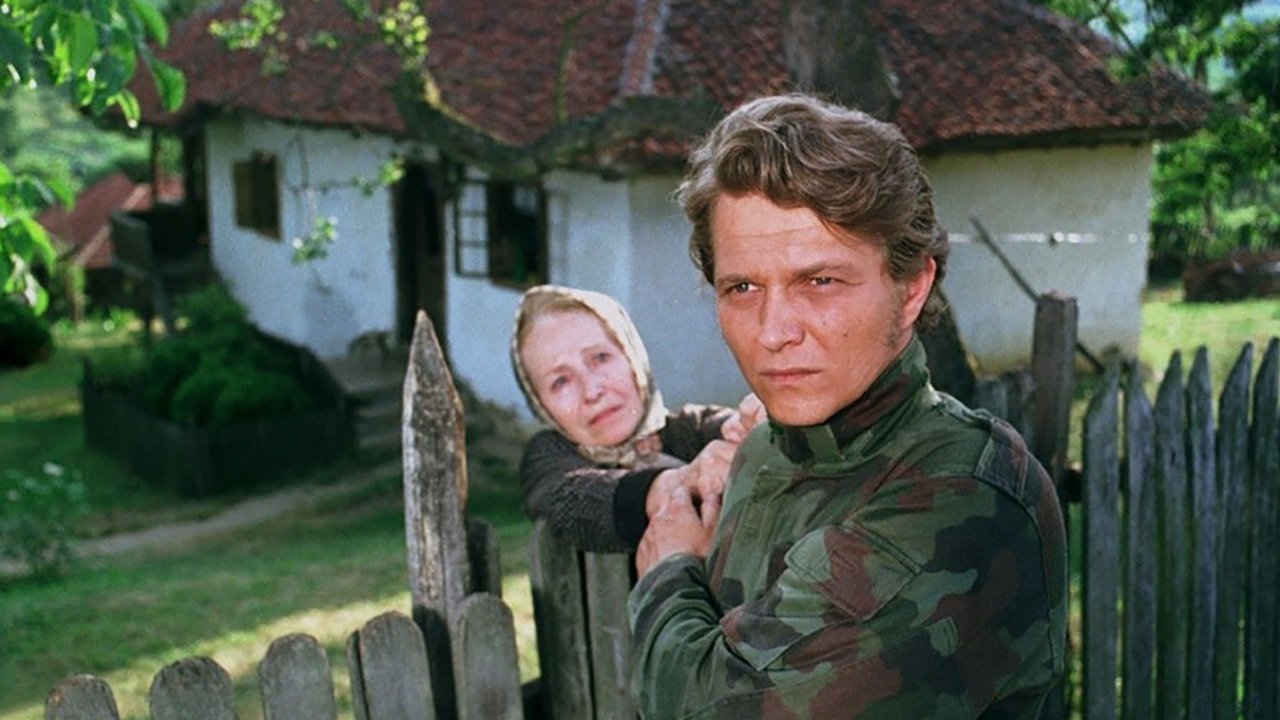

Halil makes a snide comment, suggesting Nazim's fleeing the coming war rather than simply visiting relatives, which Nazim denies unconvincingly.Īnother cut to a few years later, a wounded Milan is shown in a hospital bed at the Military Medical Academy (VMA) in Belgrade, where he taunts a wounded young Muslim soldier in the neighbouring room, whom he threatens to kill if his friend in the next bed dies. Furthermore, Nazim, a Muslim neighbour of Slobo's, rolls up in a car and trailer with his family and many of their personal belongings in tow, asking Slobo to look after his house while he's away "visiting his sister in Tuzla". Rather than commenting on the tragic event directly, Halil focuses on the circumstance that Slobo was informed of this hate crime via reading a Serbian daily newspaper, Večernje novosti, before implicitly dismissing the paper as Serb propaganda and cynically suggesting to Slobo that he should instead be reading Oslobođenje, a Bosnian daily that Slobo in turn dismisses as Muslim propaganda in his sarcastic retort. As Milan and Halil are taking a break from playing ball while having a drink in front of Slobo's kafana, Halil and Slobo engage in a testy conversation the starting point of which is news coming out of Sarajevo about a Muslim attacking a Serb wedding procession and killing the groom's father. Although the two friends are still very warm and affable with one another, the talk of war is in the air and a degree of tension along ethnoreligious lines is felt, indicating mutual mistrust and apprehension among their respective ethnic groups. During the ribbon-cutting ceremony, Bijedić (or "Comrade Džemo" as he's referred to in the newsreel) accidentally cuts his thumb with the scissors.Ĭut to 1980, not even a decade after its opening, the tunnel has already fallen in disrepair as two local village kids Milan and Halil are playing in its vicinity although they don't dare go inside it because-as they fearfully repeat a local tall tale to one another while staring into the dilapidated structure-" drekavac (an ogre from Slavic mythology) is sleeping inside and if he wakes up he'll kill everyone in the village and burn down their homes".Ĭut forward to spring 1992, as sporadic violent incidents that would eventually spiral into an all-out war are taking place throughout Bosnia, Milan ( Dragan Bjelogrlić), a Serb, and his best friend Halil ( Nikola Pejaković), a Muslim, both in their late teens, are still in their ethnically-mixed village in eastern Bosnia, playing one-on-one basketball on a makeshift hoop in front of a kafana owned by another Serb villager Slobo ( Petar Božović). The tunnel is being opened by the visiting top local Bosnian communist dignitary Džemal Bijedić as the newsreel's voiceover is extolling the quality of tunnel's masonry in hyperbolically glowing terms, gushing about the completed infrastructure project representing a key development for the area's economic progress.

The film opens with a faux newsreel-presented as a sardonic allusion to the Yugoslav state-owned Filmske novosti news organization's tone and delivery-reporting on the 27 June 1971 opening ceremony of the Tunnel of Brotherhood and Unity near an unnamed village in the Goražde municipality in eastern SR Bosnia-Herzegovina, constituent unit of the Yugoslav Federation. The main timeframe includes the "present" with a hospitalized Milan, with flashbacks to both his childhood and his early adulthood in the 1980s until the war begins, and subsequent service as a soldier where he is trapped in the tunnel. The film features a non-linear plot line, and the scenes cut back and forth throughout the 1971 to 1999 time period in no particular order. Following the success of the movie, Bulić wrote a novel named Tunel-essentially an expanded version of his magazine article.

The plot is inspired by a real-life occurrence in eastern Bosnia from the opening stages of the Bosnian War, with the film's screenplay based on a Vanja Bulić-written, Duga magazine published long-form piece about the actual event.


 0 kommentar(er)
0 kommentar(er)
